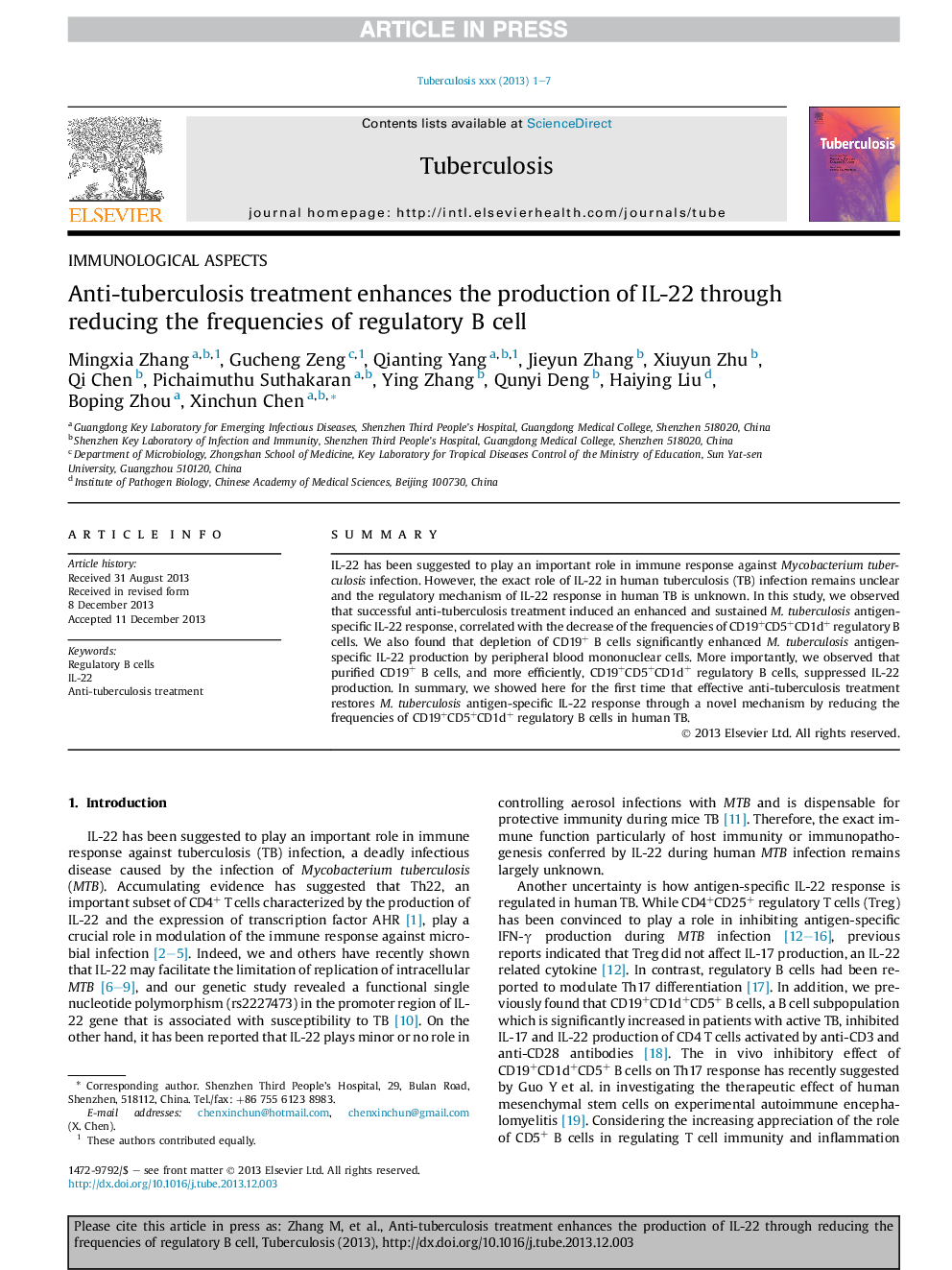| Article ID | Journal | Published Year | Pages | File Type |
|---|---|---|---|---|
| 10962151 | Tuberculosis | 2014 | 7 Pages |
Abstract
IL-22 has been suggested to play an important role in immune response against Mycobacterium tuberculosis infection. However, the exact role of IL-22 in human tuberculosis (TB) infection remains unclear and the regulatory mechanism of IL-22 response in human TB is unknown. In this study, we observed that successful anti-tuberculosis treatment induced an enhanced and sustained M. tuberculosis antigen-specific IL-22 response, correlated with the decrease of the frequencies of CD19+CD5+CD1d+ regulatory B cells. We also found that depletion of CD19+ B cells significantly enhanced M. tuberculosis antigen-specific IL-22 production by peripheral blood mononuclear cells. More importantly, we observed that purified CD19+ B cells, and more efficiently, CD19+CD5+CD1d+ regulatory B cells, suppressed IL-22 production. In summary, we showed here for the first time that effective anti-tuberculosis treatment restores M. tuberculosis antigen-specific IL-22 response through a novel mechanism by reducing the frequencies of CD19+CD5+CD1d+ regulatory B cells in human TB.
Related Topics
Life Sciences
Immunology and Microbiology
Applied Microbiology and Biotechnology
Authors
Mingxia Zhang, Gucheng Zeng, Qianting Yang, Jieyun Zhang, Xiuyun Zhu, Qi Chen, Pichaimuthu Suthakaran, Ying Zhang, Qunyi Deng, Haiying Liu, Boping Zhou, Xinchun Chen,
